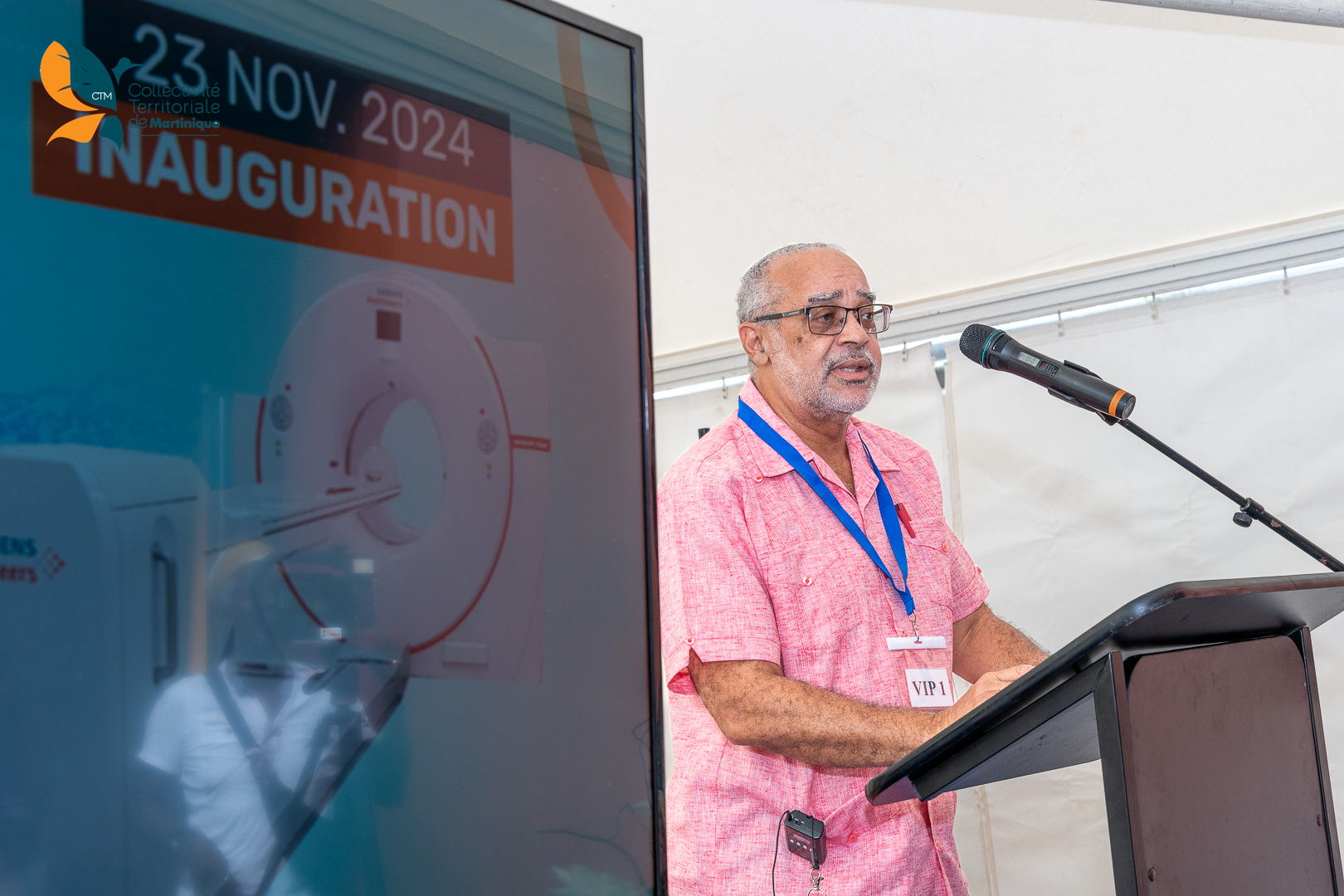
A Big Step Forward in the Battle Against Cancer-OECS Director General at the Inauguration of the Cyclotron in Martinique
Official Remarks
Kindly allow me to adopt the protocol already established but to recognize the Monsieur the Prefect of Martinique Jean-Christophe BOUVIER, the President of the Territorial Collectivity of Martinique Hon. Serge Letchimy, and other members of the Territorial Collectivity, Representatives of OECS Member States, distinguished Ladies and Gentlemen.
Bonjour à tous !
Today, we gather for a momentous occasion—the opening of this groundbreaking cancer treatment facility equipped with a Cyclotron. This achievement represents not only a leap forward in the fight against cancer but also a testament to what can be accomplished when vision is fueled by determination and encouraged by collaboration.
Cancer is a relentless adversary that has profoundly affected the lives of individuals and families across our region. It knows no borders, and its impact reverberates across every community.
Cancer is a significant health concern in the Caribbean, with varying incidence and mortality rates across the region. According to estimates from 2020, the Caribbean experienced approximately 1.5 million new cancer cases and 700,000 cancer-related deaths annually.
The main types of Cancer affecting Caribbean people include:
- Prostate Cancer: Among men, prostate cancer is the most prevalent, accounting for 15% of new cancer cases. Notably, the Caribbean has some of the highest prostate cancer incidence rates globally, with countries like Guadeloupe reporting rates as high as 189 per 100,000 men.
- Breast Cancer: In women, breast cancer is the most common, representing 14% of new cancer cases. Mortality rates for breast cancer vary, with some Caribbean nations experiencing rates up to twice as high as those in the United States.
- Colorectal Cancer: This type accounts for 9% of new cancer cases in the region. Mortality rates for colorectal cancer are rising in many Caribbean countries, highlighting the need for enhanced screening and prevention efforts.
- Lung Cancer: Lung cancer constitutes 7% of new cancer cases and remains a leading cause of cancer death, accounting for 12% of cancer-related fatalities in the region.
The cancer burden in the Caribbean is projected to increase due to demographic changes, including population growth and aging. By 2040, the annual number of new cancer cases in the region is expected to rise by 67%, reaching approximately 2.4 million.
These statistics speak to the critical importance of this facility. This Cyclotron, therefore, is more than a piece of advanced medical technology; it is a symbol of hope, resilience, and a brighter future for the people of the French territories, the OECS and the wider Caribbean.
With this facility, we are making an unequivocal statement: access to world-class healthcare should not be a privilege but a right, regardless of the size of our nations. This initiative ensures that the people of our region have access to cutting-edge treatments and early diagnostic tools, greatly enhancing our ability to combat cancer and save lives.
Moreover, the availability of this facility to other Caribbean islands reinforces the principles of unity and regional integration that lie at the heart of the OECS. By pooling resources, sharing expertise, and fostering collaboration, we can collectively overcome challenges that no single nation could face alone.
This milestone would not have been possible without the unwavering dedication and vision of many. To President Letchimy and the Territorial Collectivity of Martinique, and the dedicated health professionals (and I must single out Dr. Dabor who has been an unwavering champion of medical collaboration within the OECS), your commitment to healthcare innovation is commendable. To the medical professionals, researchers, and support staff who will operate this facility, you are the champions of this effort, and your work will undoubtedly leave a legacy of lives transformed and communities strengthened.
I also wish to acknowledge the invaluable contributions of the French State, our development partners and regional health organizations. Your support has demonstrated the impact of meaningful partnerships in advancing our shared goals for a healthier, more resilient region.
As we inaugurate this facility, let us also recognize that this is not the end but the beginning of a new chapter. The Cyclotron brings with it the promise of advanced treatment, but it also calls upon us to continue raising awareness, advocating for preventive measures, and expanding access to healthcare for all.
In closing, I extend my deepest congratulations to everyone who played a role in this remarkable achievement. Together, we have taken a bold step forward in the fight against cancer, and today, we reaffirm our commitment to building a future where quality healthcare is a cornerstone of sustainable development in the OECS and beyond.
Mèsi beaucoup, Mèsi anpil, thank you, and may this facility bring healing and hope to all who need it.
Malika Thompson-Cenac
OECS Communications Unit